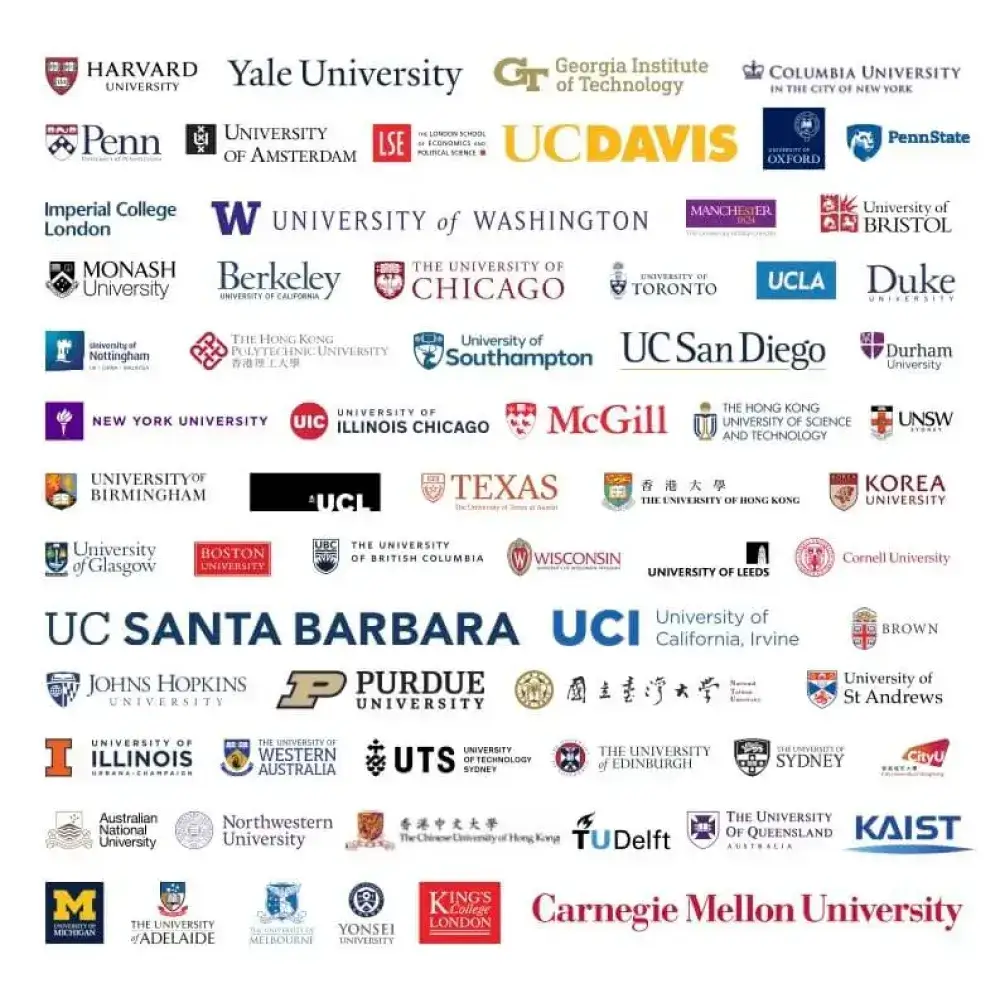How to Choose a University For Future Success
Understanding how to choose a university significantly impacts your future success. A supportive educational environment fosters personal growth and provides the necessary resources to excel in your chosen field. During university days, you also gain experiences and knowledge to shape your future career. This article will discuss key steps to help you make an informed choice and thrive in your career path.
1. Defining Your Priorities
How do you choose a university? The answer varies depending on specific goals. Students often need help with university selection because they are unclear about their aspirations. By taking the time to envision your ideal life, you can better identify what qualities in a university can help you reach those goals.
To streamline the decision-making process, create a list of priorities that reflect your personal and professional aspirations. Then, move to the following factors and assess the pros and cons based on the list.
2. Researching Academics
Academics should be the first factor to consider when selecting a university. A university known for its commitment to student development has excellent academic offerings that nurture students to achieve their full potential.
When evaluating academics, identify your favorite subjects first. For example, if you enjoy biology, look for universities that offer a range of options to find the best fit. Besides, examine the admission requirements and pathways for further education. You should also review the academic support services to succeed in the university journey.
3. Evaluating the Location and Campus Life
Consider whether you want to stay close to your hometown or experience a new environment. Moving away can provide opportunities for independence and personal growth while commuting from home offers comfort. It is also essential to consider your preferred environment, like a bustling city or a quiet rural area. Each type offers distinct advantages and challenges regarding living costs and convenience in approaching needed services.
Campus life is equally important in your university selection process, influencing your social and academic experience. As most of the time is spent in classes on campus, students should check essential facilities like cafeterias and libraries and consider social engagement opportunities when possible. Besides, clubs and events can foster a sense of community and belonging.
4. Investigating Career Opportunities
The ideal university impacts your career path, whether you plan to enter the workforce immediately or continue with advanced studies. Some universities provide robust career support services and specialized resources to connect students with potential employers. These opportunities give students an edge in a competitive job market.
When investigating career opportunities a university offers, consider a few key aspects:
- Career resources: Look for interview preparation services and job placement assistance to help you stand out in the job market.
- Pre-professional advising: If you are interested in specialized fields like medicine and law, check if the university offers tailored advising or relevant graduate programs to support your path.
- Internship programs: These programs provide hands-on experience, allow students to explore career options, and help build industry connections.

5. Calculating Tuition Fees and Living Costs
University expenses often surpass those of high schools. Hence, you must be aware of your financial capacity and explore funding options like scholarships or part-time jobs. Here is a list of costs to plan when evaluating a university:
- Tuition fees: Tuition costs vary widely between universities. Check if your preferred universities offer grants or payment plans to help manage those costs.
- Living expenses: These expenses include rent, transportation, and groceries, which can differ based on location. Consider any student housing options to ease living costs.
- Course materials: Course materials like textbooks or lab equipment can add up, especially in specialized programs. You can buy used books, access digital resources, and utilize library resources to make these materials more affordable.

6. Examining Faculty Quality
A skilled professor delivers knowledge and guides students toward their career paths. Ideally, faculty members offer tailored attention and constructive feedback to fulfill students’ university experience and academic success.
Many universities provide faculty profiles, allowing you to explore professors’ qualifications and achievements. Look for student feedback on teaching methods, as reviews can give you insights into how the faculty engages with students. Class observations also provide a sense of their interaction in the classroom.
7. Talking to Current Students
Advisors and faculty offer helpful information, but students have firsthand experience with academics, campus life, and the environment. They can share honest feedback about the quality of education and support services, which helps you understand a university’s strengths and drawbacks.
Many universities offer official programs that connect prospective and current students. On this platform, you can ask questions about university life directly. Alternatively, follow university pages on social networking sites like Facebook or LinkedIn, where current students share their experiences.
Another approach to reach current students is to attend webinars and orientation events. These occasions include Q&A sessions with student ambassadors eager to share insights.

As you take steps to choose the right university, always sharpen your skills and prepare yourself for university life. Besides, plan some long-term goals for high-school students to build a strong foundation for success and transition smoothly into university.
How ISHCMC Guides Alumni to Top University Admissions
At ISHCMC, we have recorded proven success in guiding alumni to choose the most appropriate universities around the world. Our alumni have earned places at renowned institutions such as Harvard University, The University of Pennsylvania, The University of Chicago, Yale University, and the London School of Economics.

Our alumni have received 800 offers from universities across 15 countries, securing scholarships totaling an impressive USD 21 million in 2024 only. The wide range of their destinations, from the Georgia Institute of Technology to Monash University, from Korea University to the historic University of Oxford, showcases the diversity and versatility of ISHCMC’s students.

These achievements reflect ISHCMC’s unwavering commitment to academic excellence, personalized support, and empowering students to reach their full potential on the global stage. With a diverse curriculum and strong emphasis on personal development, we help students define their goals and determine the most suitable way for their successful future. Apply to ISHCMC today and gain the resources needed for your university experience!





